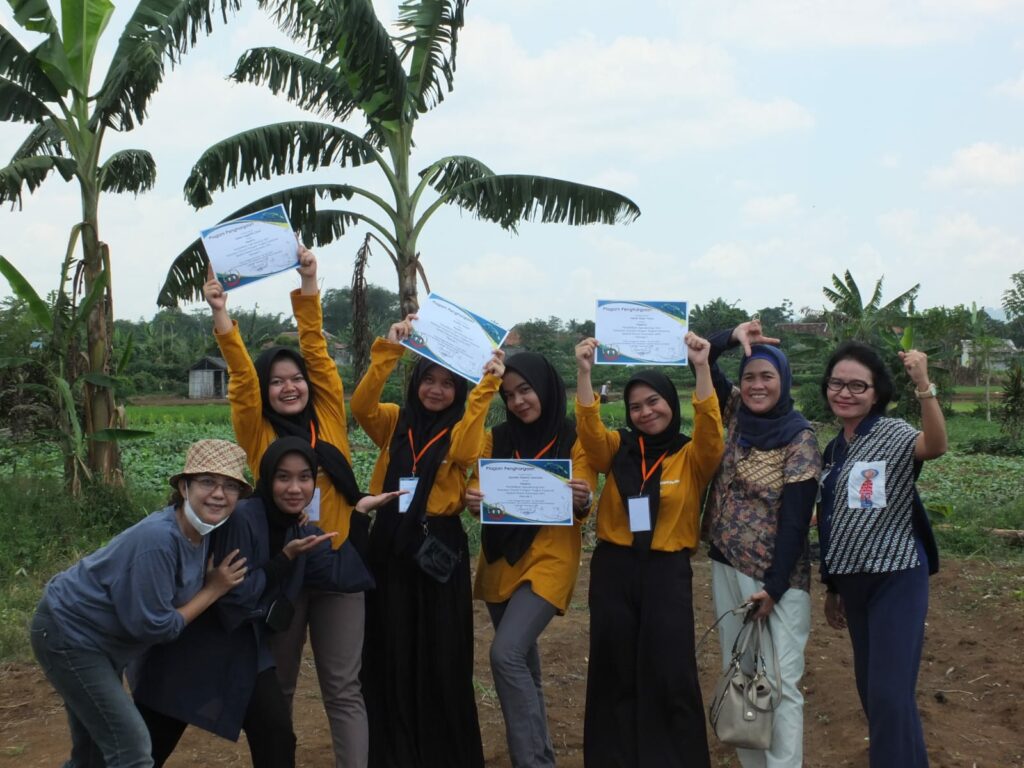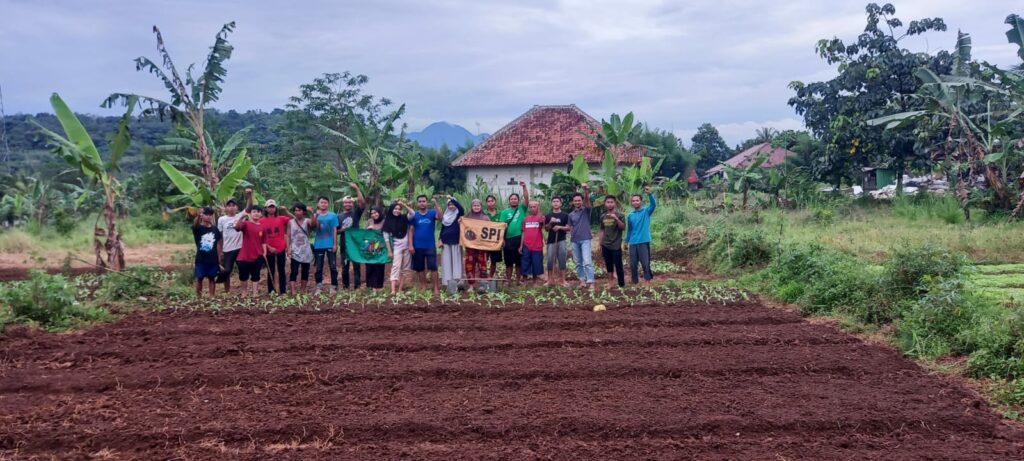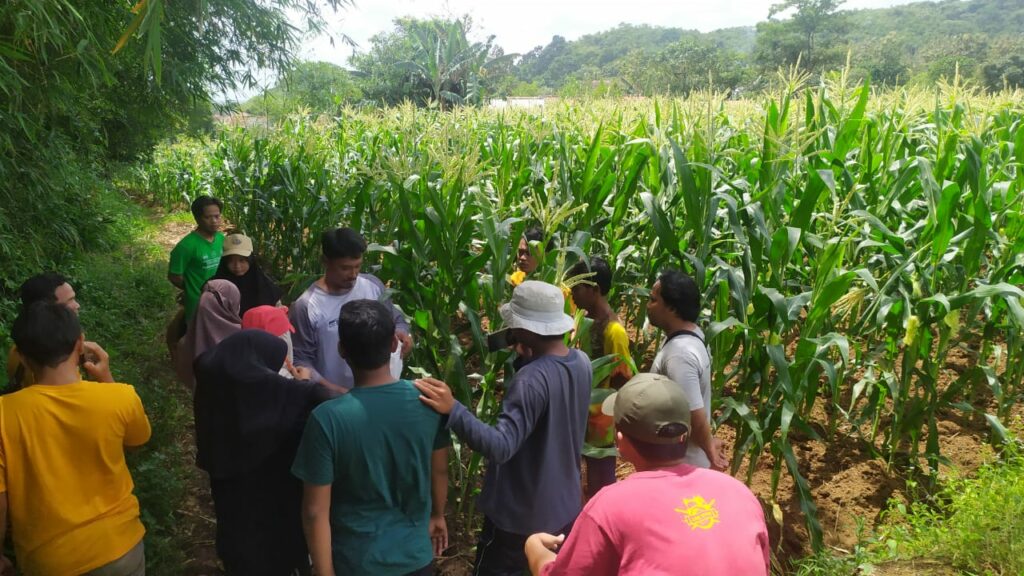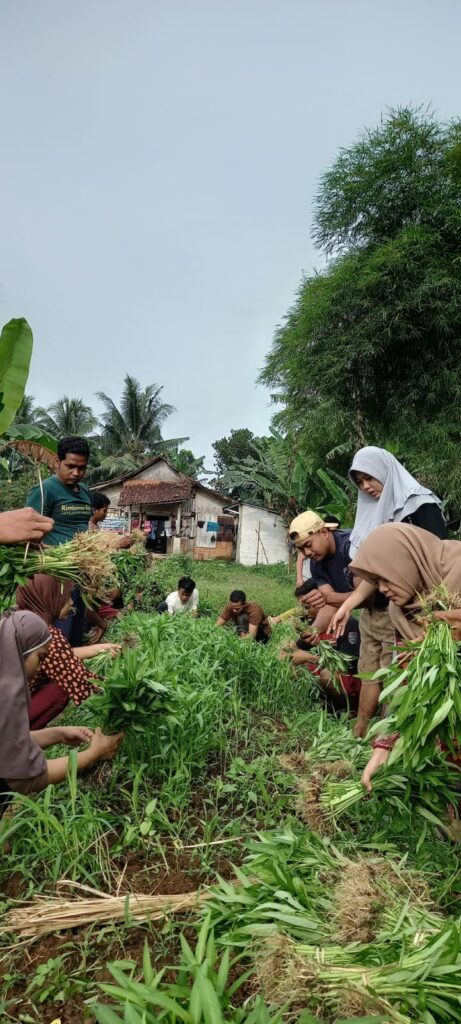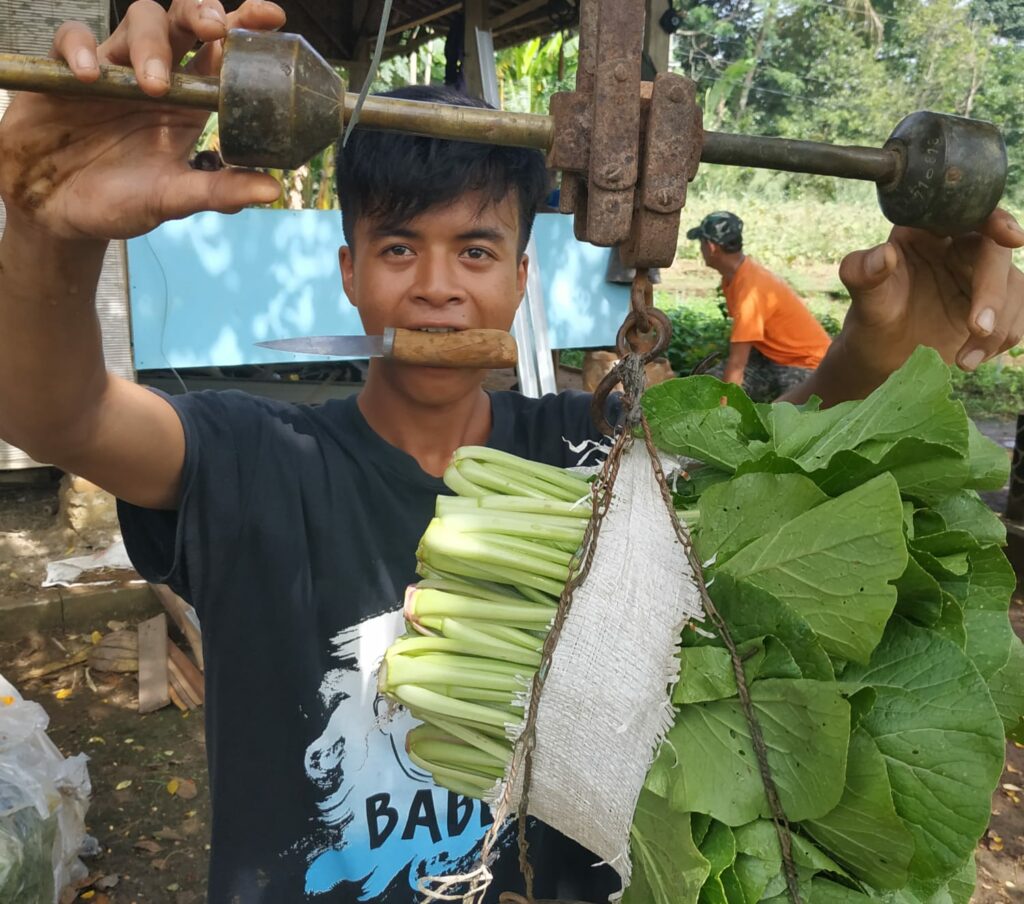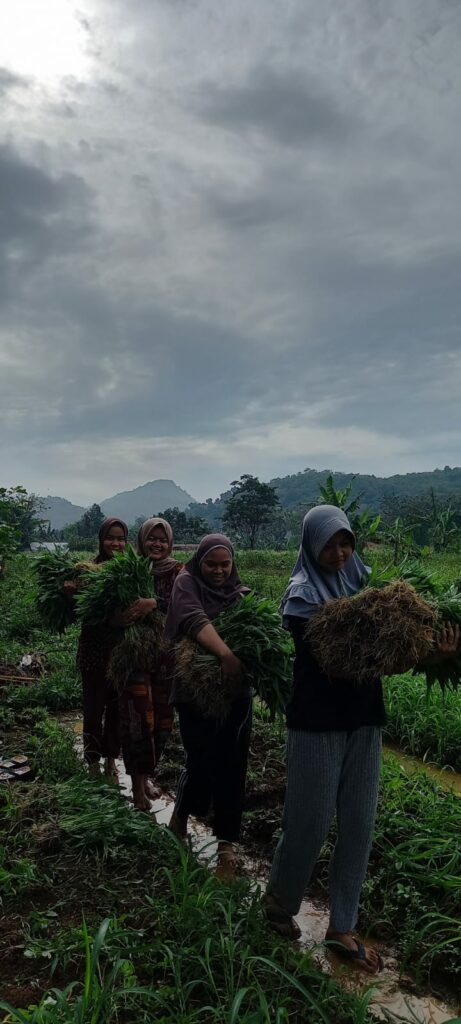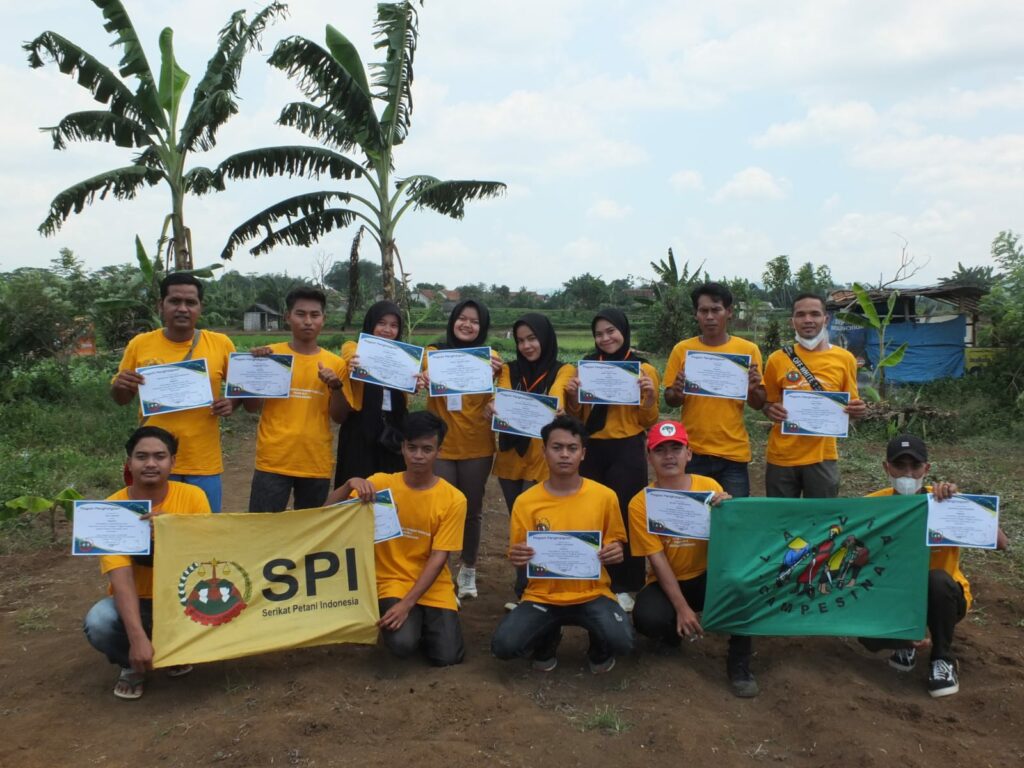BOGOR, WEST JAVA – INDONESIA.
Peasant Agroecology is a way of farming that comprehensively integrates ecological and socio-economic aspects of peasantry. Its practice in agriculture is also based on traditional knowledge that respects, guarantees and protects the sustainability of nature. Agroecology is actually our peasant’s way of life.
In a concerted way to implement agroecology in the members’ daily lives, Serikat Petani Indonesia (SPI) organized its 2nd Agroecology Formation. The formation lasted for a total of 30 days, starting from March 2 to April 2, 2022. The formation aimed to strengthen militants who will be able to practice agroecology in different Food Sovereignty Areas all across Indonesia.
Food Sovereignty Area is a model of concrete alternatives of food sovereignty and territorial markets, organized by SPI in the recent three years. A Food Sovereignty Area, for example, ideally should give livelihoods to peasant families in its scope, grow diverse, non-monoculture food based on agroecology. SPI now have 11 fully operational Food Sovereignty Areas which spread all across Indonesia from Aceh to South Borneo.
In this formation, SPI focused on 14 young peasants who came from various regions in Indonesia. During the session, participants exchanged and carried out practical agroecological tasks, discussed on how to strengthen peasants’ economy through cooperatives, and also learn about how to strengthen their movement and organization.
Qomarun Najmi, Chair of the Centre for the Study and Application of Agroecology explained, “Agroecology is an urgent need for the present and the future of agriculture. As we know, conventional agriculture has given rise to peasants and farmers’ dependence on agribusinesses’ seeds, chemical fertilizers, pesticides, insecticides and herbicides. These agricultural inputs must be purchased and they are very expensive, even though we have many solutions from nature in front of us that are cheaper, more effective, healthier, and environmentally friendly. Therefore, learning and practicing agroecology is a solution to one of the daily problems of peasants,” Qomar says in the formation.
Kusnan, Chair of Centre of Seeds and also the head of the Food Sovereignty Area team for SPI explains that the main objective of this formation is how the members can accelerate the establishment and implementation of food sovereignty areas in each member base of SPI. “Food Sovereignty Area is a territorial concept on how we can produce sufficient, safe, healthy, nutritious, and sustainable food by utilizing our natural resources in an agroecological and integrated manner. It should be done by peasants and for peasants too. This initiative focuses on strengthening the role of peasants, and how to improve their livelihoods too”. He continues, “It is also important that we learn and practice how to improve peasants’ economy in this territory – for example, building cooperatives and direct peasant markets are good practices in many areas.”
After returning to their respective areas, the participants are tasked with consolidating a Food Sovereignty Area in their respective places.
Finally, as the formation’s focus is the youth, Marlan Lase, the Head of the Department of Education, Youth, Culture and Arts of SPI, adds, “This agroecology formation is one of the special educations for SPI members, especially young peasants and it is aimed to produce militants who are ready to realize their dreams of putting food sovereignty, agroecology into real practices.” He concluded that, “Formation like this is very important for SPI. Through formation we can learn and share our experiences. SPI is currently very active in organizing formations, both for peasant activists,organisers on the theme and practice of agroecology, cooperatives, agrarian reform, UNDROP, territorial mapping, and many others.”
The graduation of the formation was organized after the inauguration of the SPI Bogor Food Sovereignty Area. In these 30 hectares of land located around 1.5 hours car travel from Indonesia’s capital Jakarta, more than 150 peasant families grow diverse, non-monoculture vegetables and fruits based on agroecology.
